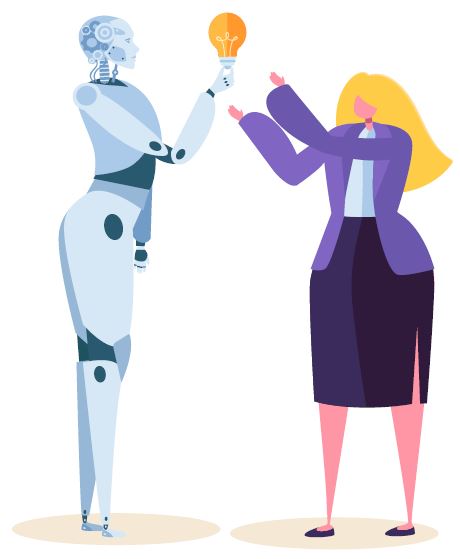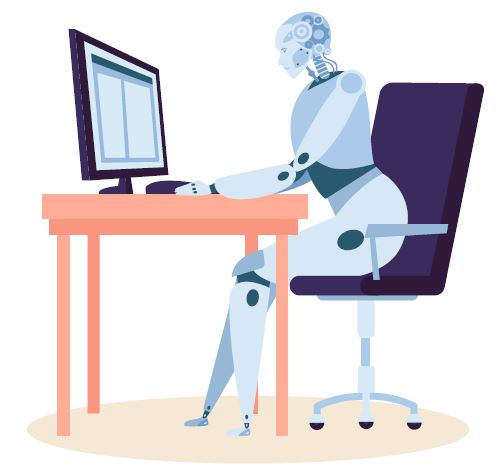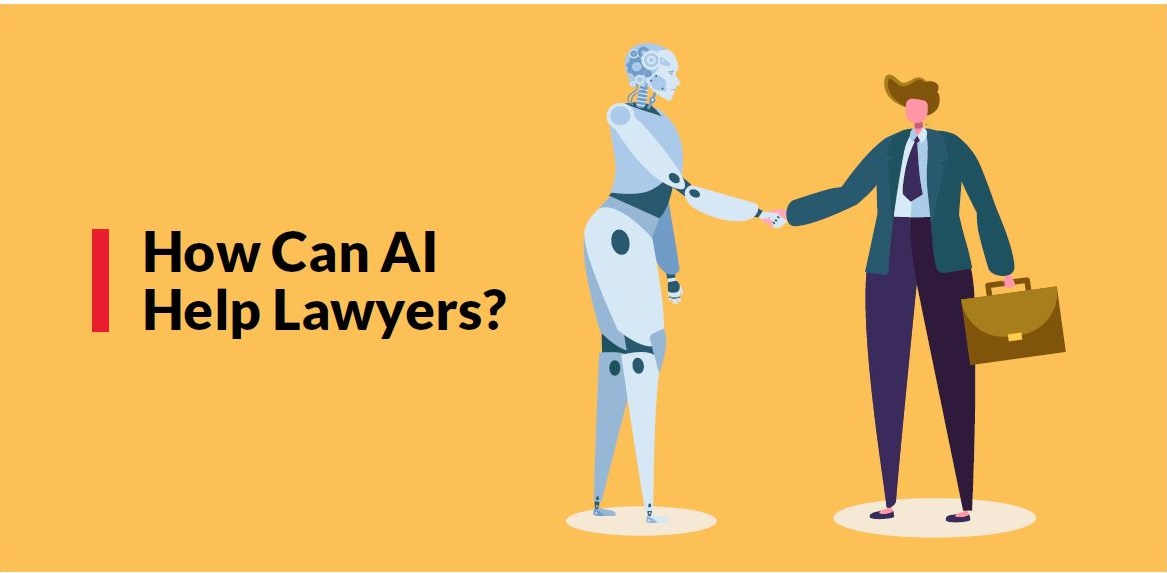When you think of artificial intelligence, it’s easy to pull in visions of beeping, whirring robots from science-fiction movies. Truth is, AI is far more cerebral than that (pun intended).
r a lawyer, artificial intelligence technology can manifest itself in several ways, from enhanced legal research and deep analytics insights all the way down to basic customer service. Ergo, it’s important to realize that the term artificial intelligence doesn't necessarily denote one thing—AI can represent several technologies and capabilities.
ARTIFICIAL INTELLIGENCE, MACHINE LEARNING AND LEGAL RESEARCH
Do a lot of legal research? You’ll be particularly interested in machine learning.
Machine learning gives computers the ability to learn without being explicitly programmed. Machine learning constructs algorithms that can learn from and make predictions about data. Such algorithms operate by building a model from example inputs in order to make data-driven predictions, or decisions, rather than following strictly static program instructions.
In other words, when used properly, machine learning helps you dig deeper into your research. It can find ancillary topics that can be relevant to your search, spot connections between seemingly unrelated subjects and even offer suggestions to your search queries.
This technology can also pro-actively correct errors in your search terms to keep you on the right path—which brings us to something called language analytics.
THE VALUE OF LANGUAGE ANALYTICS IN LAW
 If you’re a lawyer, then you already know how important specific words are within a legal text—and that’s a big problem for computers.
If you’re a lawyer, then you already know how important specific words are within a legal text—and that’s a big problem for computers.
It’s a massive understatement to say that legal-speak can be a bit different than natural language. But how does a computer decipher the nuances between the way humans speak and write, while accounting for intricacies like colloquialisms, dialect, idioms and, dare we say it, sarcasm?
This is a specific area where machine learning capabilities offer a big benefit to lawyers. It’s a painstaking process, but it is possible to teach a computer how to read legal text through advanced natural language processing. With the right analytics tools, you can then use this technology to pinpoint precise words or phrases within millions of lines of text.
Not only does this speed up your legal research, it can help you extract key judicial language that can be beneficial to your strategy. Imagine being able to use your judge’s own words in your argument—pretty powerful stuff.
Natural language processing is also handy for conducting searches. If a machine can recognize certain words or phrases, it can help deliver more relevant results and reveal where specific phrases appear in a lengthy document.
USEFUL ANALYTICS FOR LAWYERS
You’ve probably noticed the word “analytics” pop up quite a bit so far. Any discussion of artificial intelligence is bound to include talk of analytics and big data, so it’s important that you understand what that means.
In the name of brevity, analytics is the science of drawing insights from large volumes of data. This can be particularly valuable when it comes to forecasting future events—which is where predictive analytics come in.
So, for instance, by analyzing a massive set of verdicts and settlements, a computer can make a reasonably accurate prediction of how long a case may take to reach a decision or how much a possible cash award could be. That’s handy insight for lawyers deciding on whether or not it makes financial sense to take a case.
You can also predict things like motion outcomes. Take a specific judge for example. By analyzing their past grant/dismissal rates for a particular motion, you get a good idea of how successful your similar motion request could be.
This insight isn’t wizardry—it’s data analytics. And analytics are the fuel that powers artificial intelligence engines.
ARTIFICIAL INTELLIGENCE FOR A LAW FIRM
So far, this article has shared how AI can help lawyers practice the law, but there are other areas in which it offers benefits. From a business perspective, client service is crucial to a law firm—perhaps more so than most other industries.
As a result, many firms are experimenting with Chatbots. These are AI-powered client service tools that can answer routine client questions quickly and automatically. That frees up your time to focus on big-picture issues.
AI can also assist with automation, which can include basic things like scheduling and client intake, along with sending out confirmation and reminder emails.
HOW WILL AI AFFECT THE PRACTICE OF LAW?
 Anyone who’s interested in law technology will tell you that artificial intelligence in the legal profession has already made a huge impact in the way lawyers approach their work.
Anyone who’s interested in law technology will tell you that artificial intelligence in the legal profession has already made a huge impact in the way lawyers approach their work.
And though some have opined that AI spells doom for lawyers—it’s fair to say that rumors regarding the demise of the legal profession are a tad exaggerated. The future for human lawyers is pretty solid for the foreseeable decades to come. In fact, instead of fearing AI-related technologies, many legal professionals are already embracing the datafueled capabilities that they unlock.
So, while artificial intelligence is growing increasingly powerful, don’t expect to shake hands with a metallic robo-lawyer any time soon.
« Back to Small Law e-Brief Page


 If you’re a lawyer, then you already know how important specific words are within a legal text—and that’s a big problem for computers.
If you’re a lawyer, then you already know how important specific words are within a legal text—and that’s a big problem for computers. Anyone who’s interested in law technology will tell you that artificial intelligence in the legal profession has already made a huge impact in the way lawyers approach their work.
Anyone who’s interested in law technology will tell you that artificial intelligence in the legal profession has already made a huge impact in the way lawyers approach their work.
